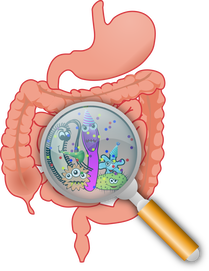Magnesium is involved in over 300 biochemical functions in the body, such as regulating heartbeat rhythms and helping neurotransmitter function. This is why hypomagnesemia (another name for magnesium deficiency) is something you really want to avoid.
Magnesium is an essential mineral and an electrolyte. Some of the main functions of magnesium are:
- Regulating blood pressure
- Keeping bones strong
- Balancing nitric oxide in the body
- Supporting growth and development in babies and children
- Supporting proper function of nerves, muscles, and tissue
- Neutralizing stomach acid
- Moving stools through the intestine and preventing constipation
The kidneys primarily control levels of magnesium within the body and excrete magnesium into the urine each day which is one reason why urinary excretion is reduced when magnesium and other electrolyte statuses are low. Magnesium is actually the least abundant serum electrolyte in the body, but it’s still extremely important for your metabolism, enzyme function, energy production and much more.
Although we only need small amounts of magnesium relative to other nutrients, we must regularly replenish our stores either from foods or magnesium supplements in order to prevent deficiency symptoms. That’s because the body loses stores of magnesium every day from normal functions, such as muscle movement, heartbeat and hormone production.
Stress is a major cause of magnesium deficiency. Under stress, the body produces excessive amounts of estrogen. Stress can be caused by many factors such as extreme diets that are missing nutrients, mental approaches to life, lifestyle circumstances, excessive work or a lack of rest or sleep and many other factors. Adequate good quality salt is important to strengthen the adrenals so that the body holds on to magnesium.
It is best to get magnesium from foods and in some cases good quality supplements such as magnesium glycinate. Foods that are high in magnesium that are more balanced in their effects are: peaches, avocado, orange juice in moderate amounts, apricots, avocado, bananas, leafy greens, beets, wild rice, buckwheat, oats, black eyed peas, kidney beans, brown rice, wild salmon, halibut and many meats.
If you can handle coffee, it is high in magnesium. Magnesium is also high in chocolate, nuts and seeds. Because of its stimulating effects, I don't recommend a daily use of chocolate. Excessive amounts of polyunsaturated fats in nuts and seeds can lower the metabolism which creates a high estrogen state. I recommend the moderate use of seeds and nuts except in the condiment sesame salt.





 RSS Feed
RSS Feed